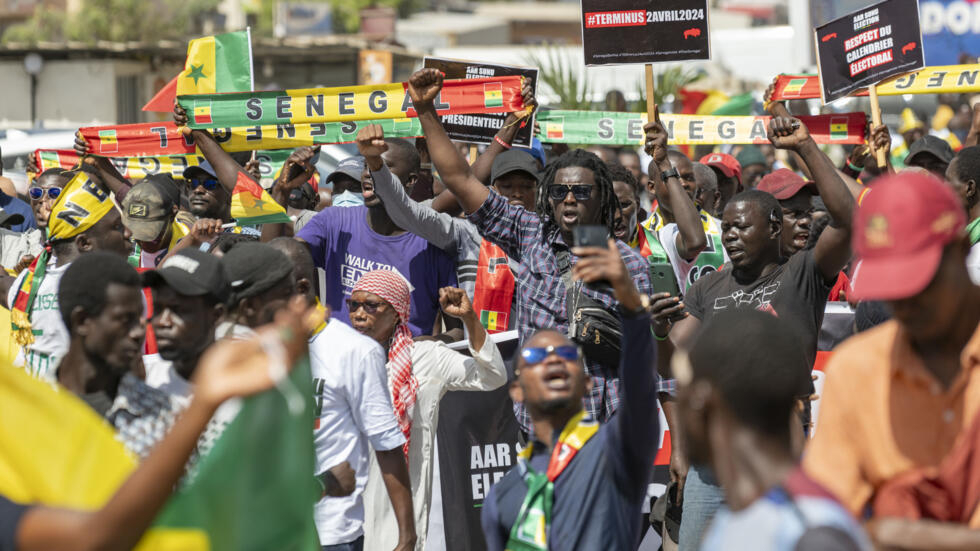
Senegal will hold on Sunday a presidential election that seemed off the cards just a month ago.
The vote was originally scheduled for Feb. 25 but President Macky Sall announced an indefinite postponement, sparking mass riots in a country viewed as a bastion of democracy in West Africa.
After weeks of turmoil, the Constitutional Council ruled that the election must take place before April 2, when Sall’s second term in office ends.
With pressure mounting within the country and from the international community, Sall had little choice but to give in and set the polls for March 24.
In two days, over 7 million registered citizens will vote at more than 16,000 ballot boxes to pick a successor to Sall, who ruled for 12 years.
Under Senegal’s electoral system, a candidate needs to secure more than 50% of the vote to win and avoid a runoff.
Who are the contenders?
A total of 19 hopefuls have their hats in the ring for this election, which is the first since Senegal’s independence in the 1960s without a sitting president in the mix.
However, according to Bonginkosi Ngwenya, a researcher on West African elections at the Human Sciences Research Council in Pretoria, it will likely be a two-horse race between former Prime Minister Amadou Ba and the main opposition coalition’s candidate Bassirou Diomaye Faye.
Faye was released from prison last week along with Ousmane Sonko, the country’s top opposition leader seen as Sall’s biggest challenger but barred from contesting the elections over defamation charges.
Faye and Sonko are close allies and previously worked as tax administrators.
Their release last Friday sparked scenes of jubilation across the country, including the capital Dakar, a testament to their popularity and an indication of the support Faye could get on voting day.
On the other side, Ba, who became prime minister in September 2022, is the candidate put forward by Sall for the ruling party. He has also previously served as the country’s foreign and finance minister.
In Ngwenya’s view, another notable contender is Khalifa Sall, a two-time former mayor of Dakar and former minister who was jailed in 2018.
“His campaign centered on achieving the (UN) Sustainable Development Goals, promising to uplift communities, especially those facing challenges of water security. He has support from certain important constituencies,” said Ngwenya.
There is another former prime minister in the running, Mahammed Boun Abdallah Dionne, who served under Sall from July 2014 to May 2019.
Then there is Anta Babacar Ngom, the first woman to run for president in Senegal in more than a decade.
She is a business executive, recognized as an industry leader and the CEO of major poultry company Sedima, a position she has held since 2016.
Projections for next president
Experts are of the view that the opposition is in pole position to take the win on Sunday.
For Harold Acemah, a political analyst and retired Ugandan diplomat, that would be a certainty “if the election is free, fair and credible.”
“Observers must keep watch so that the will of the people of Senegal is respected,” he said.
He was critical of Sall’s actions in the build-up to the vote, particularly the delay in elections and denying “the most popular candidate Sonko a chance to run.”
Buchanan Ismael, a political scientist at the University of Rwanda, also believes that Faye will take the top job, mainly because of Sonko’s popularity.
“Sonko wants to fight corruption in the government and, at the same time, protect Senegal’s economy from the influence of foreign powers,” he told Anadolu.
“His promises are drawing support for Faye and the crowds they are pulling are huge.”
